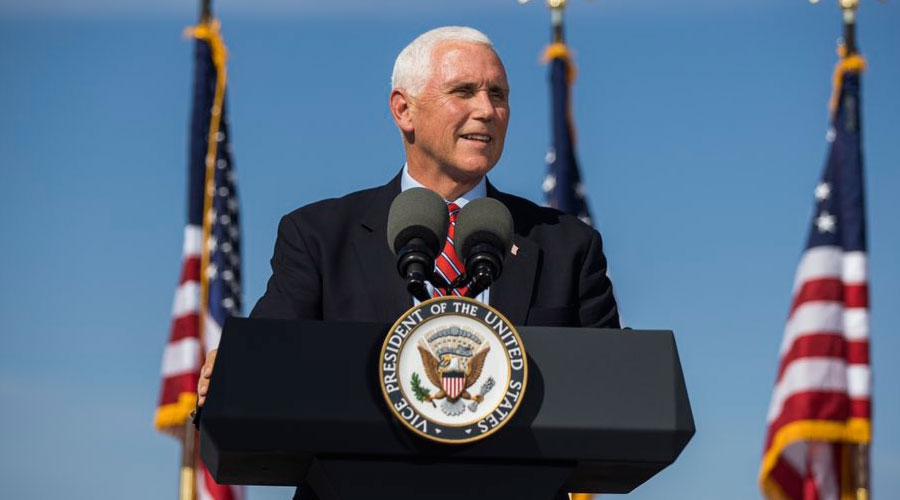Vice-President Mike Pence told President Trump on Tuesday that he did not believe he had the power to block congressional certification of Joseph R. Biden Jr’s victory in the presidential election despite Trump’s baseless insistence that he did, people briefed on the conversation said.
Pence’s message, delivered during his weekly lunch with the President, came hours after Trump further turned up the public pressure on the vice-president to do his bidding when Congress convenes in a joint session to ratify Biden’s Electoral College win.
“The Vice-President has the power to reject fraudulently chosen electors,” Trump wrote on Twitter on Tuesday morning, an inaccurate assertion that mischaracterised Pence’s largely formal and constitutionally prescribed role of presiding over the House and Senate as they receive and certify the electoral votes conveyed by the states and announcing the outcome.
Pence does not have the power to alter the results sent by the states to Congress.
More Republican senators came out on Tuesday against attempts to undermine the results, including Tim Scott of South Carolina and James M. Inhofe of Oklahoma, who said he viewed challenging any state’s certification as “a violation of my oath of office”.
In a process that is likely to go on for many hours, Pence will preside over a roll call of the states. If at least one senator and one House member object to the results from a state, they can force a debate of up to two hours about those results.
Each chamber will then vote separately on whether to certify that state’s results.
For results to be overturned, both the House and the Senate would have to agree to do so. Because the House is controlled by the Democrats, there is no realistic possibility of any state’s outcome being rejected. In addition, many if not most Senate Republicans appear likely to join all Democrats in rejecting challenges to the results.
The House and Senate are expected to debate objections to the results in at least three states — Arizona, Georgia and Pennsylvania, all of which went to Biden — but ultimately to certify Biden’s 306-to-232 Electoral College victory.
Lawmakers anticipated objections for up to three more states — Michigan, Nevada and Wisconsin — although it was not clear whether they would draw the required backing from a member of both the House and the Senate.
When the results from all the states have been considered, Pence, who as vice-president also serves as presiding officer of the Senate, will be called on to read out the Electoral College votes for each candidate, formalising Biden’s victory.
New York Times News Service










